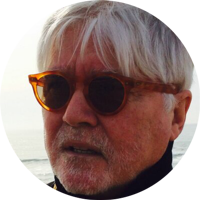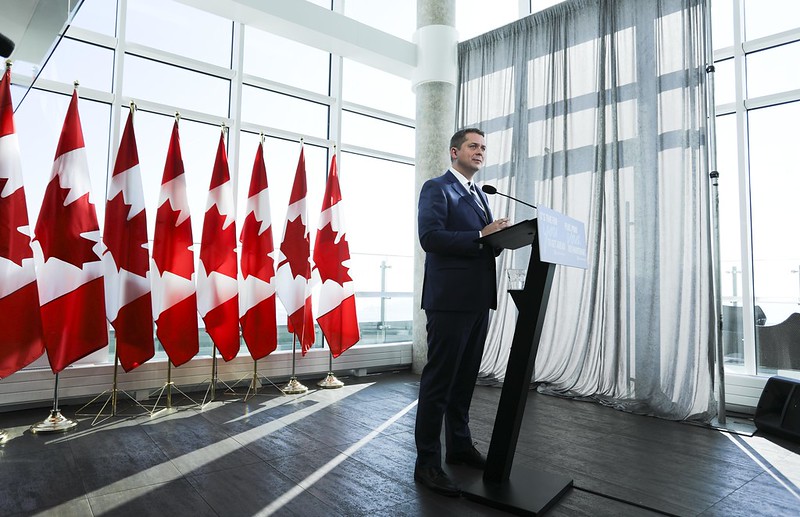Election 2019 is like Thanksgiving; a couple of days before the big event, you pick your turkey and hope for the best.
(Yes readers, only journalists, pollsters and candidates’ mothers think about elections 40-plus days before the event. The real world only talks turkey as the ballot box looms.)
That said, I predict this federal election will be marked by lower voter turnout than in 2015 and vote fracturing on all sides. Why? There is no tyrant to depose, just a moderately disappointing prime minister.
The leader of the opposition is recycling old Harper policies, setting no hearts aflutter in the process.
Though the NDP has shown a late surge, half of their current seats are at risk, particularly in Quebec.
The Green Wave remains offshore.
Nothing about this bun-fight is very popular, including the election itself.
Canadians have been given an array of reasons to vote for and against things. Blackface, padded resumes, serial lying, broken promises from 2015 and new promises that stretch out to the crack of doom.
Now the Conservative Party of Canada leader is telling voters to give him a majority government to prevent lefty barbarians from scaling the ramparts. Fatuous stuff for a guy who didn’t even bother to release a platform before the television debates.
But none of it seems to be working.
As we head into the last week of the campaign, the pollsters tell us that Canadians can’t decide between a fresh or frozen bird — Andrew Scheer or Justin Trudeau.
What they all seem to agree on is that the country should be prepared for a photo finish on Oct. 21. In the end, it will come down to a statistical coin toss between the mainstream political parties who have always run the ship of state since Confederation — the Liberals and Conservatives.
I’m here to argue that the pollsters aren’t reading the chessboard very well. There is no way for Scheer and the Conservatives to win this election, if winning means governing. Barring an asteroid hitting the Liberal campaign, the winner of the election will be Trudeau. There is my limb, and now I will climb out on it for the explanation.
Assuming the pollsters have it right (they didn’t in the 2014 U.S. mid-terms that ended in a Republican landslide, or the 2015 U.K. general election that gave then-Conservative leader David Cameron a shocking majority win), no one is in a position to capture an outright majority government.
Depending on which pollster you trust, either the Liberals or the Conservatives will have the most seats, but short of a majority. That gives the Liberals the first shot at forming a government. Website 338Canada, which does seat projections based on polling data, puts the likelihood of a minority government at 76 per cent, with a 35-per-cent chance of a Liberal minority and a 41-per-cent of a Conservative one.
The pollsters claim other political parties, the ones who won’t be running the show after Oct. 21, are on the rise, eating into the support of the frontrunners.
Jagmeet Singh was being fitted for cement boots before the campaign began. He has now emerged as the belated darling of Election 2019.
The media declared Singh the winner of the English-language debate, and pollsters tell us that his personal numbers have reached escape velocity from those early predictions of political annihilation. The latest seat projections for the NDP are in the low 30s (they had 39 seats at dissolution), but the trend line is upwards. A rainbow halo of likability envelopes this remarkable man.
At the same time, a new political star has arisen in the East, or at least in one of its bastions, Quebec. Yves-Francois Blanchet, the leader of the Bloc Québécois, got rave reviews after his performance in the French-language debate.
No one landed a glove on him over Bill C-21, which bars employees of the Quebec government from wearing religious symbols — like Singh’s turban — in the workplace. None of Blanchet’s opponents unequivocally said that the bill ought to be struck down because it violates the religious freedom provisions of the Charter of Rights.
The ghost of Tom Mulcair’s stance on the niqab, supporting the right of women to wear veils at citizenship ceremonies, hovered over the French-language debate. Mulcair’s position led to a debacle at the polls in 2015 for the NDP. The damage was the worst in Quebec.
With 70 per cent of Quebecers behind Bill C-21, the other federal leaders concluded that they just couldn’t afford to categorically denounce it in the eleventh hour of a federal election — especially when standing at a podium in Quebec.
Though none of them ruled out a future challenge of Bill C-21, they were all diminished by saying that now was not the right time for that action. That was political self-interest, not principle at work.
The result?
Blanchet came off as the successful defender of Quebec’s choices, instead of a man defending a law that will not survive a Charter challenge. Unless, of course, the Quebec government invokes the notwithstanding clause of the Constitution, as the Parti Québécois did for all provincial legislation between 1982 and 1985.
Using wit and humour, Blanchet was also impressive in the English-language debate — no mean feat since he was speaking in his second language and isn’t running candidates outside Quebec. Pollsters now say that the Bloc could take between 30 and 40 seats in Quebec, up from its current 10.
So, here’s why Scheer can’t triumph in this election. Even if the Conservatives were to win the most seats, Scheer will still require a partner in order to govern. And that is the problem. There are no partners, especially in the long term, for the Conservatives.
Scheer will lead Vancouver’s Gay Pride Parade in leopard skin tights before either the Liberals or the NDP agree to sustain a Conservative minority government.
Both Trudeau and Singh have signalled that they are willing to work together, but not with a PM who is a de facto climate-change denier.
Singh has gone even further, declaring that he will not support Scheer under any circumstances because of the “values” abyss between the NDP and the Conservatives.
Reviving moribund pipelines like Northern Gateway, as well as espousing new ones like Energy East, as Scheer has done, means that the Conservatives will still have a lock on the world’s Fossil Award. With Greta Thunberg casting a long shadow over this election, neither the Liberals nor NDP will touch the Conservative climate position with a barge pole.
So who is left to get a potential Scheer minority government through its first Throne Speech?
Although Elizabeth May initially said she would try to work with any party, the Greens would be a dreadful philosophical fit with the Conservatives. Besides, May killed any possible collaboration with the Conservatives when she declared that her party would not support anyone who stood for more pipelines. That would be Scheer.
Even if the Greens were to support the Conservatives in exchange for Scheer committing to a better climate policy, pollsters tell us that the party won’t have enough seats to sustain a government. The current projection for the Greens after Oct. 21 sits at four seats.
That leaves just one political party that will have the numbers to potentially allow a minority Conservative government to survive; the Bloc Québécois. How likely is that?
For the Bloc, there is only one interest to consider, that of Quebec. Scheer has already offered new goodies to Quebec, like his pledge to allow a single form tax return overseen by the provincial government. In order to govern in a minority situation, Scheer might be tempted to offer even more.
From the Bloc’s perspective, even though it is ideologically left on the political spectrum, the party might be able to land a few prize concessions from the Conservatives in return for propping up Scheer. They have nothing to lose in trying.
But from Scheer’s point of view, it would be quicker to down a goblet of hemlock than to embrace Monsieur Blanchet.
How would the West, the Mecca of conservatism in Canada, feel about dishing out more special rights to Quebec?
How would the Conservative base feel about securing their power by partnering with a party that was founded on separatism, and became Canada’s Official Opposition under Lucien Bouchard?
And how would Alberta in particular feel about a Conservative/Bloc marriage of convenience, when Bloc leader Yves-Francois Blanchet has consistently attacked Wild Rose country?
Blanchet has accused Kenney’s Kingdom of being a rich oil-province subsidized by the rest of the country. He has also noted that Alberta now wants to wring even more money out of Quebecers by putting a dirty and unwanted pipeline across their territory.
But it is history that offers the biggest obstacle of all to a CPC/Bloc alliance.
In 2008, the Liberals, NDP and the Bloc signed a deal to topple the government of Stephen Harper over his foolish denial of that year’s recession. At the time, Harper criticized the arrangement between Stéphane Dion, Jack Layton and Gilles Duceppe as an “unholy alliance.” How does Scheer dodge that blast from the past?
When the dust settles, the best Scheer can hope for is to win the most seats, though not a majority. All that means is a murky period of horse-trading as both mainstream parties try to find allies. That process might just end in the demolition of the Conservative base in the process, if Scheer partners with the Bloc to achieve power.
In stark contrast to Scheer and the Conservatives, Trudeau has a ready supply of allies if the Liberals need to form a minority government. The NDP and the Greens may try to drive a hard bargain, maybe even insisting on seats around the cabinet table in a formal coalition. But they will all have their dancing shoes on.
And as everyone knows by now, Trudeau knows how to do dance. ![]()
Read more: Election 2019

















Tyee Commenting Guidelines
Comments that violate guidelines risk being deleted, and violations may result in a temporary or permanent user ban. Maintain the spirit of good conversation to stay in the discussion.
*Please note The Tyee is not a forum for spreading misinformation about COVID-19, denying its existence or minimizing its risk to public health.
Do:
Do not: